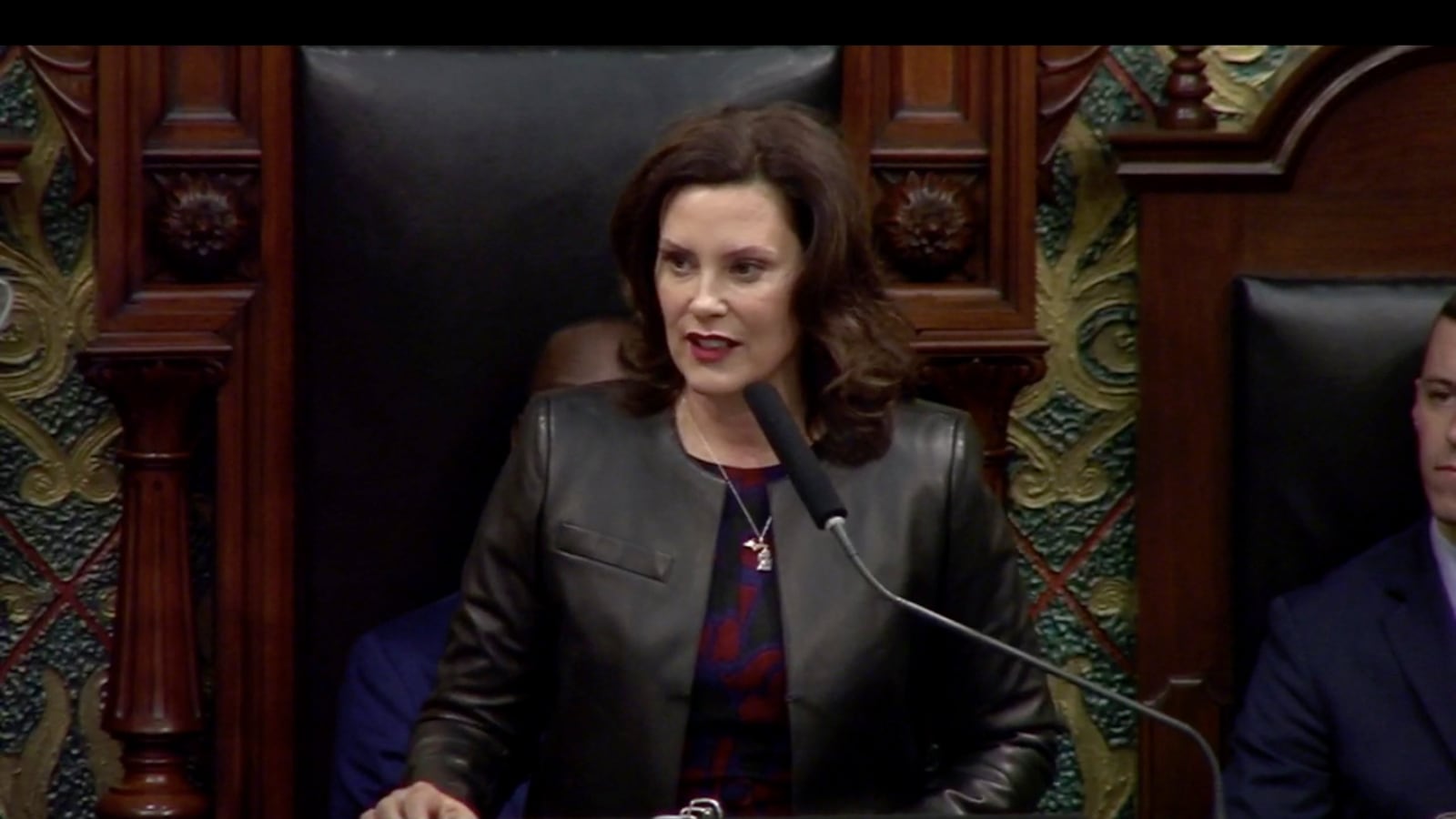Michigan Gov. Gretchen Whitmer vowed to make free preschool available to every child in districts such as Detroit — and those in many other urban and rural communities — that have low test scores or high poverty.
It was a vow that received hearty applause Wednesday night during a State of the State address in which Whitmer also called for the state to invest more in early literacy and to provide better access to child care for parents who are in school or working full-time.
The vow could help Detroit Mayor Mike Duggan’s push to bring universal free preschool to a city where thousands of children are lacking access to a quality program.
The speech, Whitmer’s second as governor, represented a shift in approach. Last year, she heavily pushed bipartisanship. This year, after a number of battles with the Republican-controlled Legislature over issues such as fixing Michigan’s roads and funding schools, her tone was one of impatience. Her theme: It’s time to do something about education, roads, health care, and the economy.
Whitmer didn’t highlight many new education initiatives, though she did formally announce that her administration is working with five philanthropic organizations to help parents navigate the complex issues related to the state’s controversial Read by 3 law. As of this year, that law mandates schools hold back third graders whose test scores indicate they’re too far behind in reading. The five organizations include the Battle Creek Community Foundation, the Community Foundation of Greater Flint, the Max & Marjorie Fisher Foundation, the Skillman Foundation, and the W.K. Kellogg Foundation. (Skillman and Kellogg are Chalkbeat funders).
“This punitive law could be a nightmare for families, and this initiative will give parents and students the resources and support they need to get through it,” said Whitmer, who shortly after she took office said she would like to repeal the law.
The law has raised plenty of concerns since it was passed in 2016, including over whether the state is investing enough money into helping students succeed.
Detroit Superintendent Nikolai Vitti, in a message on Twitter posted after the speech, questioned why Whitmer doesn’t instead work with the philanthropic organizations to change the law. He also said he doesn’t think the additional parent outreach is needed. The district has already been reaching out to parents to inform them about the law and their rights.
“Districts and schools can prevent retention by requiring a parent or teacher to refuse the retention. That’s it,” Vitti said.
Many districts, including Detroit, have invested resources into outreach to parents about the law. So have community organizations such as the Detroit Parent Network and the Education Trust-Midwest, which partnered to help parents understand their rights.
“The need for this work in communities across the state is undeniable, and we are pleased to see this type of collaboration highlighted in Governor Whitmer’s announcement today,” Amber Arellano, the executive director of Education Trust-Midwest, said in a statement.
Whitmer also targeted postsecondary education in her speech. Last year, she called for increasing the percentage of Michigan residents with a postsecondary education credential from 43.7% to 60% by 2030. She reiterated that push Wednesday night.
Whitmer isn’t solely pushing college, but the goal to increase the number of residents with some kind of degree or certificate comes as more research shows that economic mobility is strongly tied to earning a college degree.
For some students in the state, particularly those from low-income homes, getting to and through college is a challenge — something Chalkbeat has been exploring this academic year as we follow a group of Detroit and Newark high school students through their first year of college.
Whitmer pushed a previously announced campaign to get high school students to fill out the federal financial aid form, widely known as the FAFSA. And she pushed for support for legislation that would create a program, called Michigan Reconnect, to provide free training and degree programs for adults.
She also had a special message for high school students, including her own children:
“I have two words: Keep going. Make a plan for after high school. Find a program that’s a good fit for you, whether it’s a union apprenticeship, a community college, or a university.”
For the full text of Whitmer’s speech, read below:
Editor’s note: This story has been updated to fix a typographical error.

